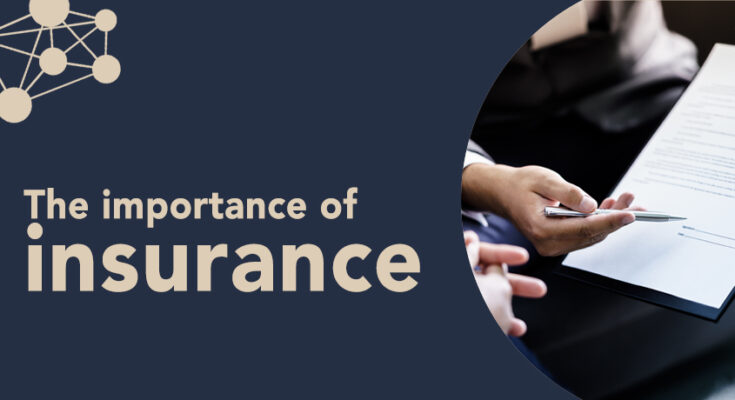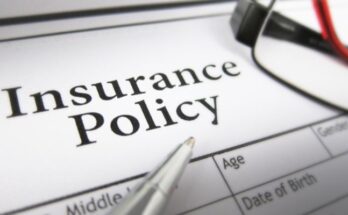Introduction
The Importance of Insurance: How It Safeguards Your Future, Insurance is a fundamental part of modern life. It is a financial safety net designed to protect individuals, families, businesses, and communities from unexpected events that could otherwise lead to significant hardship or financial loss. Whether it’s safeguarding your health, your home, your car, or your business, insurance is crucial for ensuring that your future remains secure in the face of uncertainty.
In this article, we will explore why insurance is so important, how it works, and the various types of insurance available to help protect your financial future.
Understanding Insurance: A Basic Overview
At its core, insurance is a risk management tool. It involves pooling resources (through premiums paid by policyholders) to create a fund that can be used to cover the costs of unexpected events. Essentially, you pay a small amount regularly (your premium) in exchange for the promise that your insurer will cover certain losses or damages you might incur, up to the limits defined in your policy.
This mechanism helps shift the financial burden of unexpected events from the individual to the insurer, making it more manageable. Without insurance, individuals and businesses would have to bear the full weight of any significant financial loss, which could lead to severe hardship. The Importance of Insurance: How It Safeguards Your Future.
Why Insurance Is Essential
- Protection Against the Unexpected
Life is unpredictable, and unforeseen events such as accidents, illness, natural disasters, or even theft can occur at any time. Without insurance, the financial consequences of these events could be devastating. Medical bills after an unexpected illness, repair costs following a car accident, or the loss of a home due to fire or flood can quickly wipe out a person’s savings. The Importance of Insurance: How It Safeguards Your Future.
Insurance provides peace of mind by helping people and businesses prepare for the worst. In the event of a disaster, policyholders don’t have to face the full financial burden alone. For example, health insurance ensures that a person can afford the necessary medical treatment, while home insurance can cover the costs of rebuilding or replacing lost property.
- Financial Security and Stability
Insurance plays a crucial role in promoting financial security. Life can be full of uncertainties, but knowing that you have a financial safety net allows you to plan for the future with greater confidence. Whether it’s ensuring your family’s future in case of your death, securing your home from fire or theft, or protecting your income from disability, insurance provides a financial foundation upon which you can build your life.
In the absence of insurance, one unforeseen event could destabilize years of careful financial planning. The availability of insurance ensures that a sudden financial blow does not derail your long-term goals, such as buying a home, saving for retirement, or funding your children’s education.
- Legal Requirements and Social Responsibility
In many cases, insurance is not just a personal choice, but a legal requirement. Auto insurance, for example, is mandatory in most countries to drive legally. The purpose is to protect both the driver and others on the road. Similarly, businesses are often required to carry certain types of insurance, such as workers’ compensation or liability insurance, to ensure that employees and the general public are protected in case of accidents or injuries.
Insurance can also be seen as a social responsibility. By spreading the financial risk across a large pool of people, insurers help mitigate the impact of major disasters and provide essential resources for recovery. Without insurance, individuals and communities would bear a disproportionate burden of these risks.
Types of Insurance That Safeguard Your Future
There are many types of insurance available, each designed to provide protection against specific risks. Below are some of the most common types of insurance that can help safeguard your future.
- Health Insurance
One of the most critical forms of insurance, health insurance helps cover the cost of medical care. It is particularly important in countries like the United States, where the cost of healthcare can be prohibitively expensive without insurance. Health insurance provides coverage for doctor visits, hospital stays, surgeries, prescription medications, and preventive care.
Having health insurance ensures that you don’t have to choose between financial stability and receiving necessary medical treatment. It also provides access to a network of healthcare providers, promoting better health outcomes.
- Life Insurance
Life insurance is designed to provide financial support to your beneficiaries in the event of your death. The primary purpose of life insurance is to replace lost income and cover expenses such as funeral costs, mortgage payments, and education fees for your children. This ensures that your loved ones are not left with a financial burden after your passing.
There are different types of life insurance, including term life, whole life, and universal life insurance, each with different features and benefits. Life insurance is particularly important if you have dependents or significant financial obligations that would be difficult for your family to manage without your income.
- Homeowners Insurance
Homeowners insurance is essential for protecting your property from damage or loss caused by events like fire, theft, or natural disasters. It can also provide liability coverage if someone is injured on your property. Mortgage lenders typically require homeowners insurance to protect the value of their investment in the home.
In addition to protecting the physical structure of your home, homeowners insurance often covers personal property, such as furniture, electronics, and clothing. If your home is uninhabitable due to damage, your policy may also cover temporary living expenses while your home is being repaired.
- Auto Insurance
Auto insurance is mandatory in most places, but it’s not just about complying with the law—it’s about protecting your vehicle and your financial well-being. Auto insurance can cover the cost of repairs after an accident, liability for damages to other people’s property, and medical expenses if you or someone else is injured in a car accident.
There are different levels of auto insurance coverage, ranging from basic liability insurance to comprehensive coverage that protects against theft, vandalism, or weather-related damage. Having the right auto insurance ensures that you can drive with peace of mind, knowing that you are protected in the event of an accident.
- Disability Insurance
Disability insurance provides income replacement if you are unable to work due to illness or injury. This type of insurance is often overlooked, but it can be invaluable for those who rely on their income to support themselves and their families. Disability insurance typically covers a portion of your salary for a specific period, ensuring that you can continue to meet your financial obligations even if you are temporarily unable to work.
There are two main types of disability insurance: short-term disability and long-term disability. Short-term disability typically covers a few weeks to a few months, while long-term disability provides income for an extended period, often until the individual is able to return to work or reaches retirement age.
- Business Insurance
For business owners, insurance is a vital tool for protecting against a wide range of risks. Business insurance can cover property damage, employee injuries, liability claims, and business interruptions caused by disasters or unforeseen events.
Types of business insurance include general liability insurance, professional liability insurance, workers’ compensation insurance, and business interruption insurance. Having the right insurance in place can help a business recover quickly from setbacks and continue to operate smoothly.
The Bottom Line: Insurance as a Long-Term Investment in Your Future
While insurance might seem like an additional expense in your monthly budget, it’s important to recognize it as an investment in your future. By protecting yourself from catastrophic financial events, insurance helps you maintain your financial stability and recover from setbacks more quickly.
Without insurance, even minor incidents could lead to significant financial hardships that could take years to overcome. With insurance, however, you can face the future with greater confidence, knowing that you have a safety net in place to protect you and your family from the unexpected.
In an increasingly uncertain world, insurance offers a sense of security and a pathway to long-term financial well-being. It ensures that no matter what life throws your way, you can safeguard your future and continue moving forward.




